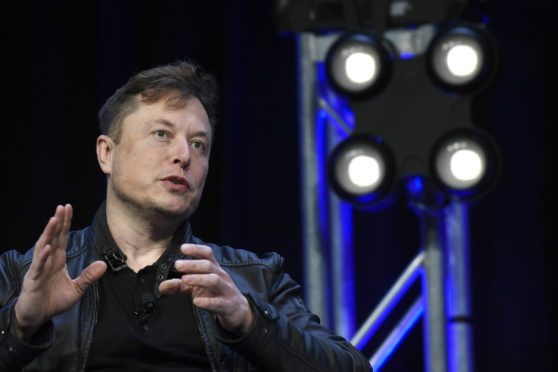When I was a child, my mother had a set of battered, antique kitchen scales, that swung up and down with force as you added or removed the individual weights that accompanied them.
I have thought of the old, chipped primrose yellow of those scales often in our current predicament, a memory that is usually prompted by the wild swing of emotions, first one way then the other, when trying to work out the true nature of humanity. Greedy or giving?
On the one hand, there has been such shocking selfishness – from the opportunists using every internet scam to make a fast buck out of tragedy, to the supermarket hoarders who thought only of their own families, wasting not a second on the frail elderly who struggled to shops in the early days of this, only to be confronted by empty shelves.
Not to mention the politicians, nursing their dogma in intensive care while patients gasped for breath outside it, like stranded fish.
Boris, being one of course. The look he has hitherto perfected, of the tousle-haired tot dressed in his daddy’s suit, is not sitting well with his new attempt at gravitas and statesman-like speech making.
Especially when the speeches in question make about as much sense as a tot’s first “ga-ga-goo”.
The gist of it – as far as one can determine – is that the majority of the middle class can stay home to work while security guards, construction workers and the like can get back out there. No contact tracing but good luck and stay alert. Oh, and maybe walk to work to avoid overcrowding public transport, there’s a good chap. Tally ho, little Britain. Tally ho!
But on the other hand, tales of human generosity, of small kindnesses and huge sacrifices, light the darkness of Covid and make the scales rise a little to balance out the weight.
One such tale is that of a recent donation of half a million pounds by the Irish people to the Choctaw reservation in Mississippi, to provide food, water and necessary supplies during the Covid-19 outbreak. Native Americans are particularly vulnerable to coronavirus because so many live in poverty, and because they have such a high incidence of diseases such as asthma, diabetes and heart conditions.
The Irish donation is payback, the history behind it, touching. In 1847, the Choctaw people heard of the plight of the Irish nation, devastated by the potato famine. Separated by thousands of miles and an ocean, tales of starvation nonetheless prompted them to raise $170 in aid.
What was remarkable about the donation was that the Choctaw had their own troubles. Seventeen years before, in 1830, they had been forced to sign the Treaty of Dancing Rabbit Creek, giving up the lush terrain of their ancestral homeland in Alabama and Mississippi. Instead, they were given 15 acres of wilderness in Oklahoma.
The migration to the new lands could not have been more badly timed. The winter of 1830 was one of the coldest ever recorded and they battled blizzards and flash floods as they tried to cross the Mississippi river in what would later be called the “Trail of Tears”.
Their houses were burned down, their cattle let loose, and they were plagued by outbreaks of cholera. They knew what it was to be hungry. Malnutrition killed thousands in that painful exodus and they were still recovering when they helped their Irish brothers and sisters. Perhaps it is true that those who have least, give most.
Certainly, in this crisis, it is hard not to deduce that those who have most are determined to keep it. From Boris to Elon Musk, the CEO and architect of Tesla electric cars, who is said to be worth $36 billion. Musk’s response to coronavirus?
The panic, he declared on the day global deaths exceeded 100,000, was “dumb”. Lockdown interfered with his “freedom”. Maybe, but not half as much as death would.
He refused to close his car factory until forced, and has insisted – backed by Trump – that it should now reopen early. I doubt he’ll spend his days on the factory floor but his workers will, the equivalent of the working class fodder of trench warfare.
Necessary victims. Where is Musk’s recognition that he is rich because of those workers? How ugly ingratitude is. And how different to the gratitude that has flowed between Ireland and America for nearly 200 years.
In 1992, a group of Irish people walked the “Trail of Tears”. In 1999, a Choctaw man led the Irish Famine Walk. Neither side has forgotten the other.
There is a tendency in times of darkness to think that our predicament is unique in its awfulness, forgetting the trials and troubles in periods of history when there were none of the safety nets that catch us now.
The global health organisations, the scientific community, the benefits of sophisticated communication systems.
Granted, we have to put up with Boris and Trump and Musk and their self-centred ilk, but sometimes, it helps to remember that if we look hard enough, we find human instincts that tip the scales the other way.

